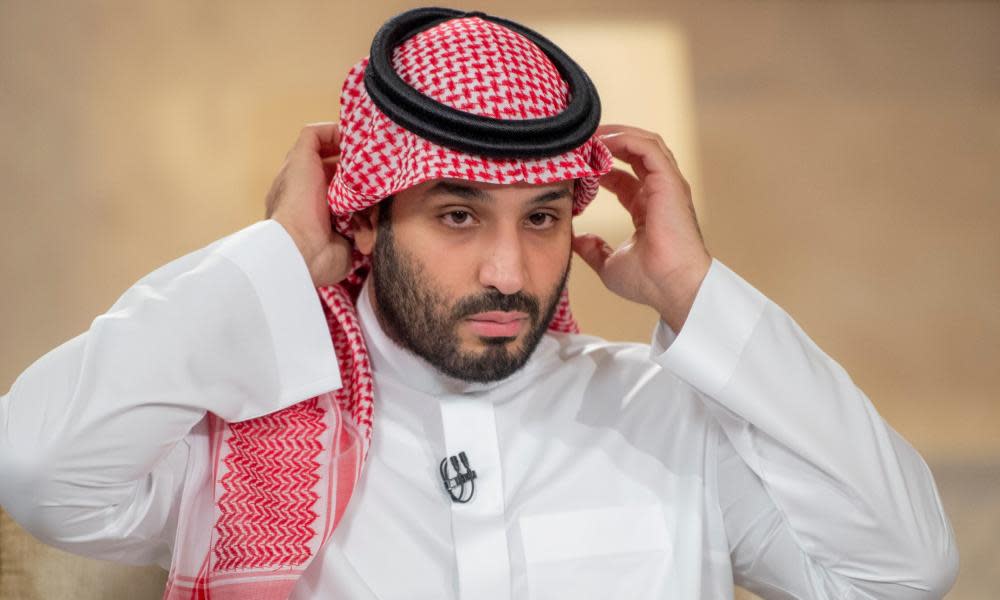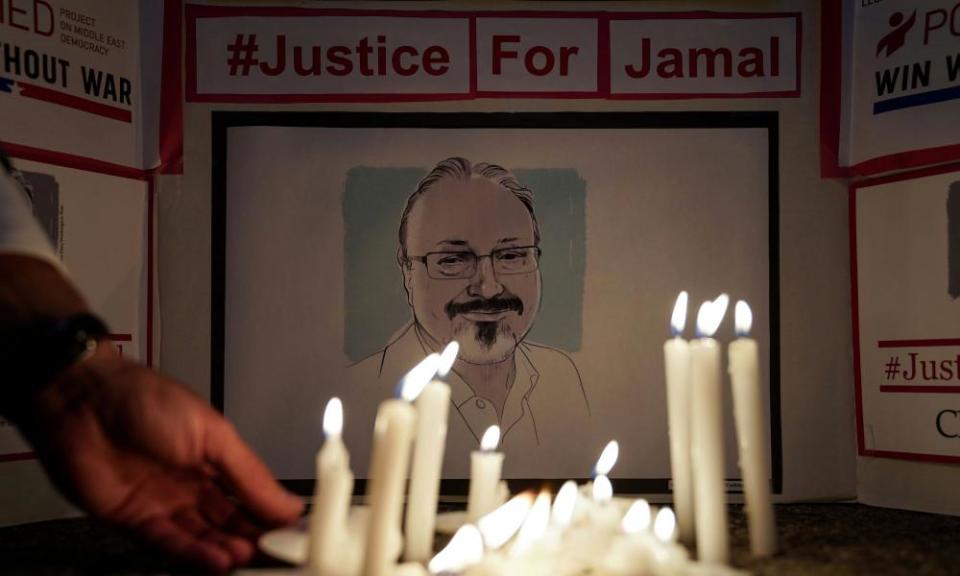‘Weak’ US let Saudis jail more dissidents, says rights group

The Biden administration’s failure to impose sanctions on Saudi Arabia’s crown prince, Mohammed bin Salman, has led to a increase in severe sentences for political prisoners in the kingdom, the Guardian can reveal.
The UK-based human rights organisation Grant Liberty found that twice as many harsh sentences had been meted out to Saudi prisoners of conscience in April than in the first three months of this year combined. It followed the Biden administration’s decision on 26 February to publish an intelligence report that showed the crown prince, “approved an operation in Istanbul, Turkey, to capture or kill Saudi journalist Jamal Khashoggi”.

In the weeks since the US decision, Grant Liberty said it had seen a renewed crackdown on political prisoners and claimed there was a direct link to the American failure to impose sanctions on the crown prince or his close circle of advisers. It said the decision had given the Saudi authorities carte blanche to mete out severe punishments to critics.
“News from the Saudi legal system can be notoriously slow, but at least eight individuals suffered stiff sentences in April alone – twice as many as the first three months of the year combined,” it said. There were no prisoners of conscience sentenced in either April 2019 or April last year.
In late February, the Biden administration announced the “Khashoggi ban”, by denying visas to 76 Saudis “believed to have been engaged in threatening dissidents overseas, including but not limited to the Khashoggi killing”. But critics said these measures, which stopped short of imposing sanctions on the crown prince or those close to him, had done little to discourage the Saudi authorities from targeting critics.
Lucy Rae, of Grant Liberty, said: “The international community must demonstrate that the only way the kingdom can improve its standing is through genuine reform. That means we need the tough action [presidential] candidate Biden talked about, not the weakness President Biden has so far shown.”
Abdulrahman al-Sadhan, an aid worker who was one of the eight men sentenced in April, received a 20-year jail term and an additional 20-year travel ban for running a parody social media account. Abdulaziz Alaoudh al-Odah, who was arrested last September for his social media activity, was sentenced to five years in prison.
His nephew Abdullah Alaoudh, son of the imprisoned cleric Salman al-Odah, as well as a pro-democracy activist at the Washington thinktank Democracy for the Arab World Now, said that the administration’s choice to publish the report aided accountability but little else. “It absolutely helped transparency, and helped us to know where responsibility lay, but accountability was completely lacking, and that’s what was at stake from the very beginning,” he said.
“The Biden administration knew this,” Alaoudh added. “But they manoeuvred, they wanted something light like the ‘Khashoggi ban’, and they made the symbolic gesture of talking not to the crown prince but instead to the king. What the prince took from all this is that everything [that Biden said] during the [presidential] campaign was just campaign talk, and therefore they won’t act on it.”
Related: Biden defends move not to punish Saudi crown prince over Khashoggi killing
There are 22 prisoners of conscience who were sentenced for comments related to the kingdom’s former blockade of Qatar. Saudi Arabia’s relations with the tiny Gulf state have been warming. Qatar’s emir, Sheikh Tamim bin Hamad al-Thani, flew to Jeddah on Monday evening to meet the crown prince, shortly after the Saudi foreign minister, Prince Faisal bin Farhan al-Saud, visited Qatar.
A spokesperson for the US Department of State said: “The United States’ commitment to democratic values and human rights is a priority, especially with our partners. We continue to elevate respect for human rights in our bilateral relations with Saudi Arabia. As we have repeatedly made clear, peaceful activism to promote human rights is not a crime.”
The Saudi Arabian embassy in Washington did not respond when contacted for comment.
Alaoudh said that while the crown prince may be willing to shift on matters of foreign policy, he viewed control over free speech as a direct threat.
“You can normalise with everyone – Qatar, Turkey, Iran – but not your own people because that means sharing decision-making, which for them is so dangerous,” he said. “Agreeing to some kind of political participation or power-sharing is an end to the absolute monarchy, which is all they know.”

 Yahoo News
Yahoo News 